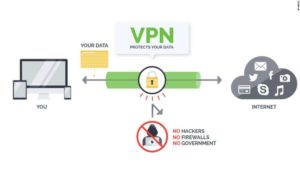What is buffering? Why does it happen? How can I minimize it?
There are a lot of misconceptions in the streaming world about what buffering is, what causes it, why it happens and how to help avoid it. So we wanted to write an article addressing some of the causes of buffering and how to help minimize it, Please note that I did not say eliminate it as this is impossible.
But before we get into the buffering discussion I want to explain a little bit of how streaming actually works and explain what is happening behind the scenes when you click on something to stream.
So let’s go through what happens when you click on a link. When you click on a link in any program a script (Computer Code) connects your internet connection to the URL address of where that stream is housed. It can take a second or two for your internet and this URL address to be paired up and for data to begin to flow into your device. In most cases it takes a few seconds for the full amount of data the server you are connected to, to begin being transferred to your internet connection. This is why many streaming services like Netflix and Hulu will start off a video in low quality. Then once the full flow of data has begun they will switch to a higher resolution. This is done so that the stream will start faster and as you receive more data it will switch to high quality.
What causes buffering while streaming?
I have read some very interesting theories and ideas on as to why buffering happens. From people thinking that the graphics card can’t handle the stream, the processor is working too hard. As complicated as people want to make buffering issues out to be, it is actually very simple. There are really only two variables that can cause buffering while streaming.
Your Internet Speed and your Router
The first and usually most overlooked reason that buffering occurs is your own internet speed. Many users try to skimp out on upgrading their internet speed. If you are going to stream your video content you need fast internet. While you can get away with 10 Mbps down for most streams, this is really the absolute minimum speed needed for a good streaming experience. When you take into account speed lost through Wi-Fi (Usually much more than you think,) other devices in your house using bandwidth and fluctuations in the internet speed you are actually getting from your provider you can see how 10 Mbps can turn to 5 or below very quickly.
What is the recommend internet speed for streaming? This is a personal preference but we recommend for an optimal streaming experience you should have 25 Mbps or higher.
There are also several other factors that can affect your own internet speeds. The most common negative factor is Wifi. Wifi is extremely convenient for connecting lots of devices to the internet without having to connect them with a wire. With this convenience comes a downside. Wifi signal fluctuates up and down very often which can lead to buffering.
I cannot stress enough how quickly Wifi signal and speeds degrade over distance and through obstacles like walls. People are under the impression that if they are getting a wifi signal to a device that the device is getting the same amount of bandwidth as they pay for.
I have 200 Mbps down at my house and about 15 feet from my router through one glass door I get about 30 Mbps down to my Google Pixel XL. This goes to show how much wifi can degrade over distance and obstacles.
Another huge factor with your internet speed is who else is using it and what are they doing. If you have 10 Mbps down and a family member is downloading a bunch of stuff and another family member is playing an online game then there is a strong chance your video content is going to buffer.
Another great tip to help increase your speed is to reset your router once a week. Your internet provider spent time and money finding a router that they can give you that works just enough to provide a decent signal. They skimped and penny pinched as much as they could to save themselves money. So your stock router is not of the highest quality. With that being said, over time these routers degrade in the speed they are able to broadcast. By simply unplugging the router for 30 seconds and then plugging it back in we have seen many customers internet speed double. If you haven’t reset your router in a long time or forever it is a great idea to do this.
So to summarize your internet speed and how it effects buffering while streaming.
- Minimum of 10 Mbps Down, while the preferred speed is around 25 Mbps Down.
- Connecting your unit to the internet via an Ethernet cable is ideal
- If you must use Wifi, make sure the unit is very close to the router (15 feet or under is ideal)
- Make sure you have reset your router recently.
- Keep in mind what others in your household are doing on the internet. If they are doing anything bandwidth intensive it can affect your streaming.
So let’s get into the second source of buffering while streaming. The second half of all of your video streams is the stream sources ability to give you data. You can have 1,000 Mbps down and be hardwired via Ethernet, but if the stream source cannot give you enough data you will get buffering. This a fact that most people do not understand. Take as an example, you are browsing the internet on a fast PC with good internet connection. You click on a website link and the site is very slow to load, you click on another link within the same site and it also loads very slowly. In this scenario your computer is working fine, your internet speed is fast, so why is the website loading slowly? Your computer? Internet connection? Graphics card? Operating system? It is none of these. What is causing the website to load slowly is the server it is using to deliver data for users to view its website. This server is having at least one of many possible issues. It could be overloaded with users, It could have its main internet connection lost and is using a backup internet connection, It could have had a physical hardware failure, one of the many servers it needs to pass through to get to your internet connection is down. These are just a few of the issues a server may encounter that will cause it not to be able to give out enough data to load a website or video stream.
Video content files are stored on servers. These servers have a limit in how much data they can transmit out to people. When these servers reach a level of users they get overloaded and are not able to give out as much data as may be needed for an end user to stream a file with no buffering.
Servers are not cheap to buy, rent or operate. Streams come from all over the world. Some are from multibillion dollar companies with massive data centers, some are from smaller operations and some come from free public servers that limit amounts of data and speeds. The long story short is that sometimes servers get overloaded, fail or go down.
So let’s sum up some of the misconceptions about buffering in while streaming.
- Buffering has nothing to do with your units Processor speed, Graphics processing power or RAM
- Buffering has nothing to do with your hardware
What causes buffering?
- Slow internet speeds on the users end
- Wifi signal being weak and or degraded by distance or having to go through walls or other obstacles
- Other users on your internet network hogging bandwidth
- The stream sources server being overloaded with too many users
- The stream sources server having internet issues
- Your internet provider having fluctuations in their internet service
How to minimize buffering while streaming
- Have at least 10 Mbps actually getting to the unit. 25 Mbps is preferred
- Hardwire your unit directly to the internet via an Ethernet cable
- Reset your router once a week
- Pause a stream for a minute or two to allow it to build up some data
While most of the streams that you click on will work with no problems at all, you are going to encounter streams that just can’t give you enough data for whatever reason. You can have 1,000 Mbps and be hardwired and you will still have links that won’t stream without buffering. It has nothing to do with your hardware or the program you are using. It is just because the server can’t give you enough data.
If you encounter a stream that isn’t playing smoothly, stop the stream and choose another one. It is that simple.
I wish we could tell you that every link will work and every stream will play flawlessly with zero buffering, but we cannot.
So follow all of the steps to help minimize buffering while streaming and you will have a much better experience.



